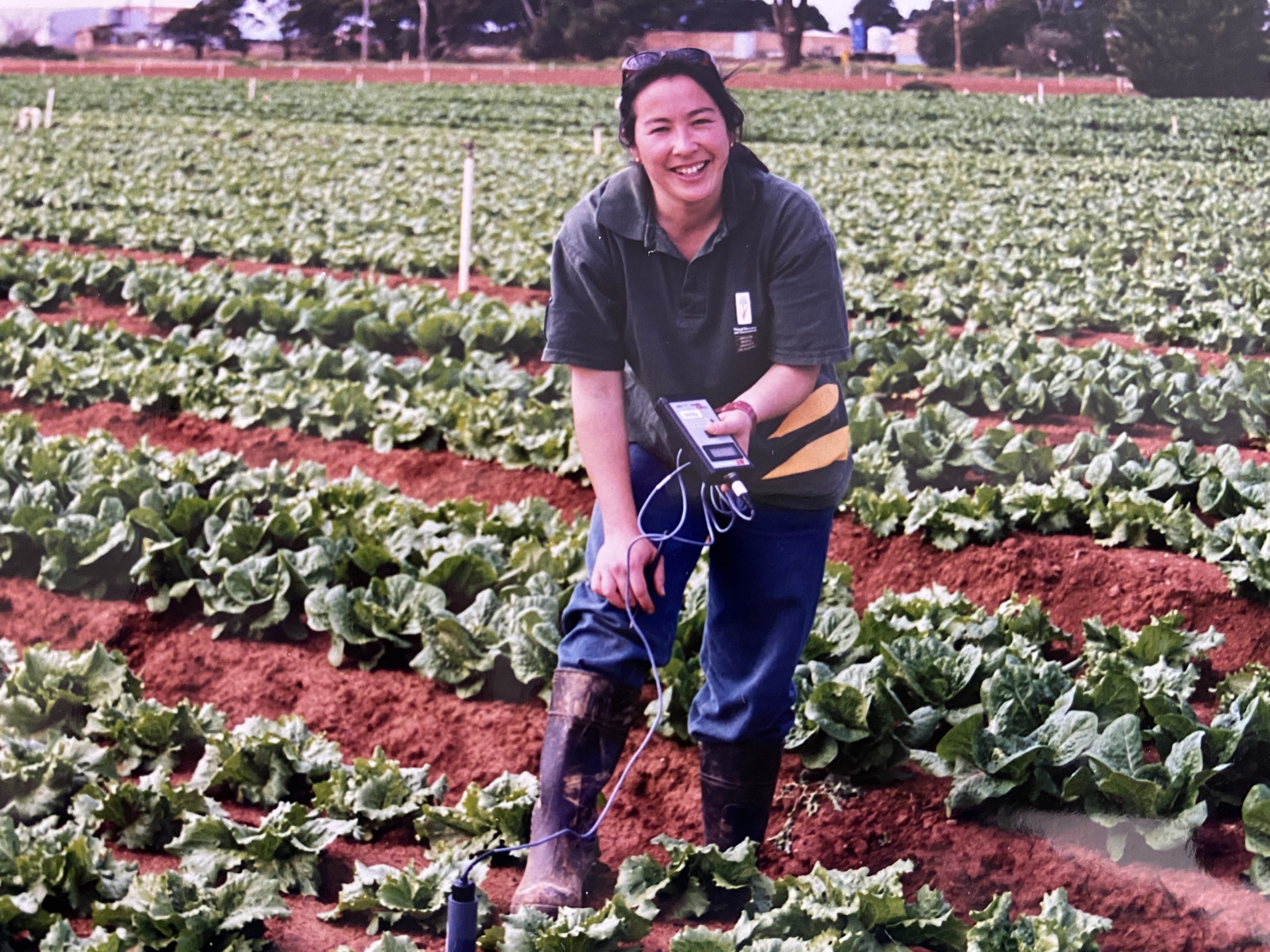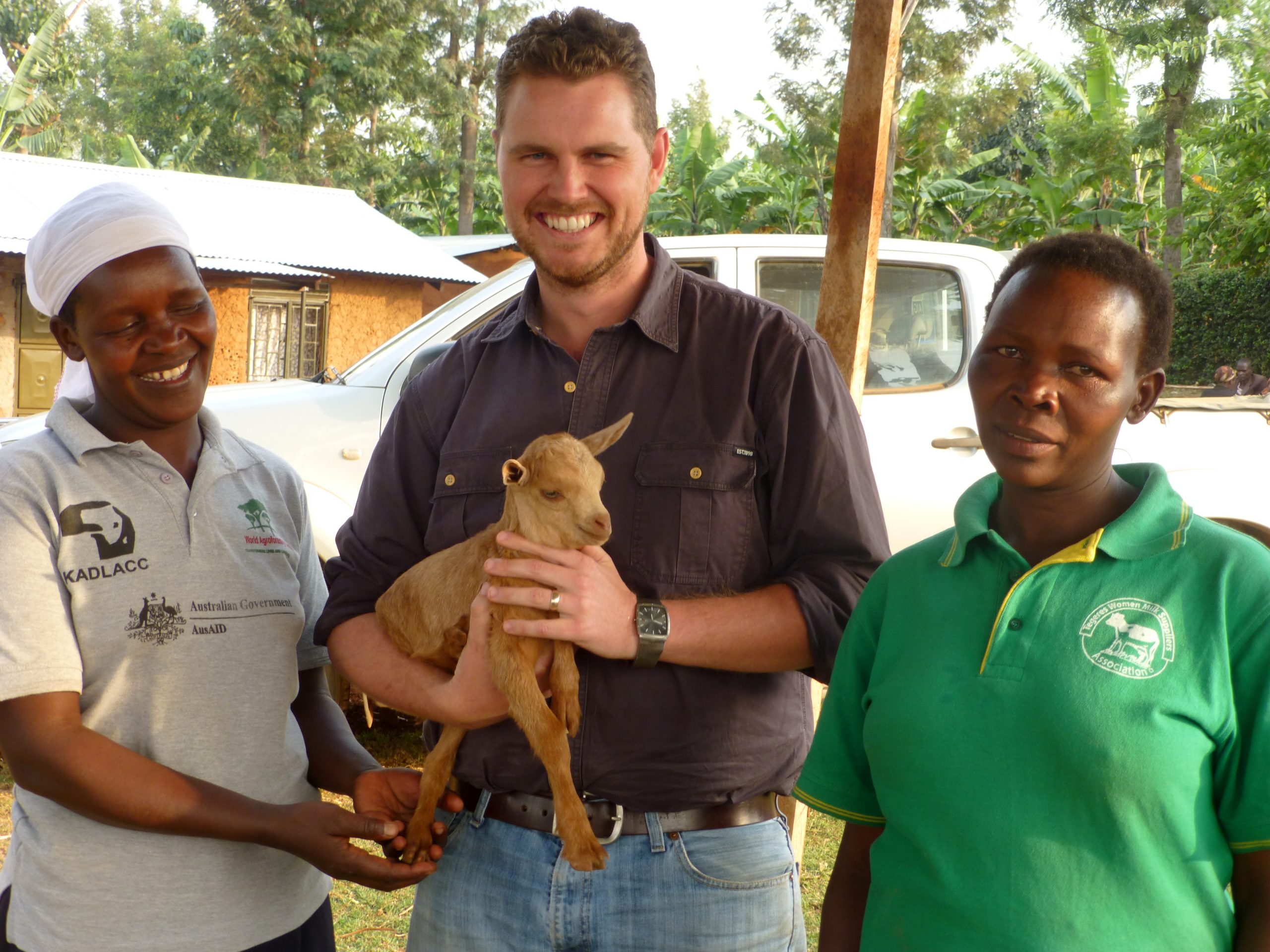18 Nov 2021
Careers in agriculture: RMCG staff reflect on their #AgVenture
This year's National Agriculture Day celebrates the fulfilling careers available in agriculture. We spoke to three of our staff about their career pathways in agriculture and what they enjoy about the industry – from the wonderful farmers we work with to the diversity of work available.
Clinton Muller
Despite growing up on a mixed horticulture and sugarcane farm in Childers – just outside of Bundaberg, Queensland – Clinton Muller never planned to forge a career in the agriculture industry.
“My parents always encouraged me to look at other career options. But I was passionate about the family farm, and I have fond memories of Childers – it has the best red soil in the country!” he said.
Since not knowing what to pursue when leaving school, Clinton’s career path has twisted and turned through the agriculture and environmental sectors both in Australia and overseas. From working with sugarcane and fruit and vegetable grower associations in Queensland, to overseeing the work health and safety requirements of a large-scale tomato operation, working with water authorities to address diffuse source pollutants from agricultural land use and developing international Landcare in Kenya, Clinton has seized every opportunity with gusto.
“The agriculture industry has always been of interest to me and there is plenty of diversity and opportunities for a career.”
Horticulture focus
Clinton’s interest and experience in sustainable agriculture and environmental management led him to his role as Senior Consultant at RMCG. Recently, he has taken the reigns to coordinate our team of horticulture experts to better support the industry through our work.
“The horticulture industry is fascinating. I have always loved propagating plants, and from a young age I would spend my school holidays building garden beds when I wasn’t helping out on the farm,” Clinton said.
“My mum also inspired me through her leadership roles at regional industry bodies in Queensland and the Freshcare board. The exposure to her work and the issues and frustrations that she saw as a grower helped me to appreciate the production challenges for the horticulture industry and how I could help.
“I enjoy being curious and working with people to overcome the challenges they are facing. It is a great privilege to work in agriculture and there are plenty of opportunities to work on projects that I enjoy and are meaningful to the industry.”
Clinton’s recent project highlights:
• Preparing a research, development and extension (R,D&E) strategy for the goat fibre industry
• Developing career pathways into the nursery and garden industry
• Coordinating a R&D extension program for the strawberry industry
• Investigating agricultural extension models in the South Pacific to support the livelihoods of local farmers
• Addressing the issue of pre-farm gate waste for the agriculture, fisheries and forestry industry.
“Agriculture provides a smorgasbord of opportunities for career paths – it’s everything on a platter,” Clinton said.
“You don’t have to be pigeon-holed into one area throughout your career and you can work in broader disciplines within the sector. It’s not as limited in its diversity of career options as other industries, you’ll never be bored.”
Clinton Muller’s career in agriculture included working on international Landcare in Kapchowra, Uganda.
Emily Tee
Emily Tee’s work history provides a strong example of the diversity of career options available to a person in agriculture. In fact, it was this diversity which led her to study Agriculture Science at university.
“While I was interested in specialised areas such as plant biology and ecosystems, I thought the course offered more variety and flexibility as a student looking for career options after graduation,” she explained.
After working on farms and dabbling in landscape design, Emily moved into a biosecurity regulatory role with the Victorian Government. This was a baptism of fire for the young graduate, which involved 2am shifts at the Melbourne Wholesale Market in Footscray where she dealt with the risk of new plant pests and their impact on fresh produce growers and the supply chain.
“It was an interesting role which helped me to understand the agriculture industry and the impacts of biosecurity, which can affect trade both domestically and overseas,” she said.
Emily then sidestepped into the research sector with a focus on green waste and compost when it was still in its infancy, and she developed guidelines which would provide the foundation for composting in Victoria.
Other roles have included R&D extension in integrated pest management for brassica growers, developing environmental management systems to support Australian agriculture’s brand of being “clean and green”, and working with farmers and different industries to meet their environmental obligations.
“I’ve also delivered internal capacity building programs to support other extension officers, conducted strategic evaluations of government programs and translated new legislation into operational procedures,” Emily said.
“I love being able to deal with complex processes, explore them and come up with solutions that go one step closer to achieving an overall goal.”
Solving the workforce issue
Emily joined RMCG as a Senior Consultant in 2019 where the diversity of work in agriculture continued.
“Agriculture is systems based and it has allowed me to develop systems thinking. My experience of working in government means that I can interpret the policy development and legislation impacts in my current work,” she said.
“I also enjoy working with others in the business as part of a team, learning and applying new ideas.”
For many years RMCG has developed career pathways for specific industries within agriculture and identified skills gaps and workforce planning to meet future needs.
A highlight for Emily includes identifying culturally and linguistically diverse (CALD) communities in Victoria and working through the opportunities to connect them to agriculture industries in their local area.
“A major challenge for the agriculture industry is labour and grappling with the concept of skills shortages and workforce gaps. It’s an opportunity to highlight the range of career pathways that can go some way in addressing that shortage,” Emily said.
“Agriculture has the scope and potential to take you in a lot of different places. You can develop a broad breadth of skills which can then be tailored to a range of sectors and adapted to fit into different roles in the industry.”

Emily Tee in the field during the early days of her career in agriculture.
Jake Gaudion
Like many students, Jake Gaudion was unsure of what he wanted to do as a career after finishing school.
“I was interested in biology, chemistry and ecology so I enrolled in a science degree at university, and the courses really opened up my eyes to agriculture,” he said.
“I liked the blending of different disciplines in agriculture and the holistic ways of thinking as well as the scale of the industry.”
After completing a Masters in Agricultural Science with a focus on food and sustainability, Jake worked at a chemical and seed producing company in Victoria. He became familiar with RMCG’s work during his university days so when the opportunity came up to join the business, Jake moved to Tasmania work with the RMCG team in Launceston.
Variety is the spice of ag life
The diversity of work in agriculture is Jake’s most enjoyable part of the job, and his scientific background comes in handy for much of it.
For instance, in Tasmania Jake helps the team to conduct agricultural assessments for development applications to local councils. This involves evaluating characteristics of a property to determine the impacts on agriculture and ensure environmental assessments meet planning scheme requirements.
Water resources form another key part of Jake’s work, such as dam modelling and applications for farmers to support the use of water in a sustainable way. Despite being based in Tasmania, Jake also works with his interstate colleagues on water balances and the feasibility of recycled water schemes for irrigation in Victoria.
“Agriculture is a great industry to be in to make positive changes. You get exposure to a huge range of people: not only farmers but scientifically-minded people who understand the challenges of producing food and can analyse the best of way of securing the industry’s future,” he said.
Jake’s advice for those who are considering a career in agriculture is simple: “Get in there and give it a shot. Try different things and work out what you like doing. Agriculture is well-suited to those with scientific interests in particular – the variety of roles is great and it’s never the same day in, day out.”

Jake Gaudion.
More information
Visit our Agriculture Expertise page to find out more about our work in the industry.
You can also watch this short video on our work in Australian horticulture or see our full capability statement on workforce planning and development.
